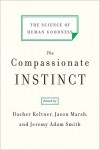Currently reading

Guess this book is really trying to aim for the Greek Socratic dialogue because wow chapter 19 was full of some one-dimensional harpies just so Oshima can vomit out more exposition in some perfectly executed argumentative smackdown.
And three hundred more pages talking about Kafka's penis to go. Whoo...

Five Golden Rings and Some Plucked Birds

It's officially after Thanksgiving, which means holiday related merchandise is ready to flood everywhere. This year there's the newly pepperminted collection edited by Stephanie Perkins, "My True Love Gave to Me"
"Midnights" by Rainbow Rowell (★★★★)
Rainbow Rowell can write romantic build up like nobody's business and this one hit all the contemporary romance sweet spots. Mags and Noel meet at a Christmas party over pesto and become fast friends with a complicated relationship of wanting what they have but both of them having subtle desires to change it. She managed to convey the passages of time in her characters' interactions with grace, where some of the small details crystallized the whole thing as a story of longing and the upheaval teens have in their "go into the real world" crises. Mags and Noel have such an easy chemistry that it's easy to see where it might go if they just wanted it to. And I was rooting for them.
"The Lady and the Fox" (★★★)
The atmospheric details of the Hallewell family keep this version of "Snow Queen" from getting too off the rails, even if the ending lost the initial charm.
"Angels in the Snow" (★★)
This one had a good meet-cute setup and the protagonist, Shy is broke and on the other end of the country, dealing with a snowed in Brooklyn while cat sitting and happens to meet the cute neighbor when her pipes don't work. It had all the elements of a compelling backstory, I really wanted to delve into the complications of Shy's family life and his conflicting feelings about being here and the subtle cues of racial and background differences between him and Haley but. unfortunately the pacing ruined it. It's brushed aside for a conventional will they/won't they which felt like a hastily made snowman that blots out the scenery of a gorgeous background.
"Krampusklaus" by Holly Black (★★★)
An interesting idea on the Krampus, the vengeful demon who was often paired with Santa Claus' benevolent present giving. Cute story but more for the antics than the holiday romance, which felt tacked on when all this fun vengeance was being wreaked.
"Polaris is Where You Find Me" by Jenny Han (★)
Weakest story out of the collection, hence the rating, but not without a few merits. A girl is adopted by the Santa Claus and deals with isolation of living in the North Pole with only elves and her father for company. Mostly it seems incoherent for world building and the romance between her and this one elf seemed very awkward and unsatisfying. There are some nice ideas, such as the merit of giving elves presents something they would be adverse to with their background as toy makers, but largely forgettable.
"It's a Yuletie Miracle, Charlie Brown" by Stephanie Perkins (★★★★★)
Glad to see the editor contributing one of the strongest stories. I can't say much about why this story works other than it combines charm, kinship, background and all the right elements that made it a joy to read.
"Your Temporary Santa" by David Levithan (★★)
Probably the best Levithan story I've read, but even then he still manages to put in an unnecessarily hostile character for drama. A boy dresses up as Santa as a favor for his new boyfriend, trying to preserve said boyfriend's little sister with a sense of wonder. The romance part and the Santa playacting were disjointed parts of the story, even though they directly influenced each other. It wasn't bad it just wasn't as good as that setup could be.
"What the Hell Have You Done, Sophie Roth?" by Gayle Foreman (★★★★★)
Manages to imbue a great dynamic between Sophie and Russel, who questioned her Ned Flanders mutterings. The dialogue carried them together but also gave a realistic twinge of misunderstandings and the sometimes second guessing of outsiders. The story is distilled romance and Sophie Roth learning to reevaulate herself from meeting him. Nicely done.
"Welcome to Christmas, CA" by Kiersten White (★★★★)
For anyone who wants a Hispanic POV Christmas story, this one is the superior offering than "Angels in the Snow." It's tone is lighter rather than romantic, and the setting becomes its own character. Maria hates living in podunk Christmas, California. She works in a dead-end diner and her one co-worker friend has retreated into herself from an abusive boyfriend. Then, one day, the new cook shows up with a dash of magical realism in being able to cook exactly the right meal for the person who comes in to eat. The story permeates family, friends and the whole community. Plus, I found myself rooting for Maria and Ben because he has magical cooking powers. Best boyfriend!
"Beer Buckets and Baby Jesus" by Myra McEntire (★★★)
A rascally troublemaker finds himself wanting to do good for the preacher's daughter when he accidentally ruins their Christmas pageant plans. I liked the love interest, and the calamities that went on in the story.
"Star of Bethlehem" by Ally Carter (★★)
Lydia impulsively trades places with an Icelandic girl when there's a problem with her airline tickets. She then is dropped in the middle of Oklahoma with said Icelandic girl's sort-of boyfriend and his family, forced to continue a ruse to escape her life. Mostly nice,and I appreciated the attempts at making the family part of Ethan's character, but a lot of the story strained credibility in a "While You Were Sleeping" escalation of lying. Even the out-there ending could have been salvaged more by a real connection between Lydia and Ethan but it didn't feel very deep.
"The Girl Who Woke the Dreamer" by Laini Taylor (★★★★)
Laini Taylor writes gorgeous, gorgeous prose, there is no arguments here. Her story is the furthest afield, set in a strange fantasy isle of poor farmers who have a courtship ritual during the advent. Neve, having recently lost the only people she loved, has a choice between starving to death on a plot of nothing or accepting a heinous man's marriage offer, when she decides to plead to an ancient god. It's a beautiful story but it's the least holiday feeling of the bunch.

It's a shame that a biography about one of the most potentially interesting subjects ever feels so dry. Tye's "Superman: a Biography" talks a lot about the Man of Steel's enduring qualities but never manages to convey the sense of breathless wonder about him that so many of the subjects had. On the other hand, the story also keeps a dry and academic tone to the mishaps of the so-called "Superman curse" and the legal battles of his creators, sparing it from sounding too sordid but also anesthetizing the complications behind the scenes.
If people want an exhaustive timeline of Superman events (and mostly it's a long list of the merchandise made) then this is a good book to read. However, this isn't one to give someone who hasn't heard of Superman if you want to inspire their curiosity. And it's not engaging enough to compete with the other offerings for the die-hard fans who probably already know 90% of what's found inside. Best given to those who want a compilation or just like collecting Superman stuff.
Personally, I found the book engaging enough. The best parts were talking about the Donner films. Which came closest to explaining the excitement people have about the big blue boy scout...
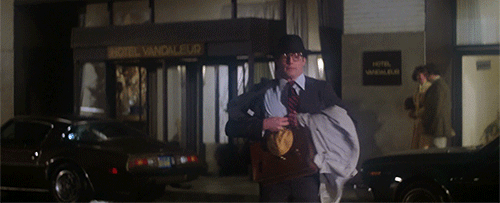
"Some Girls Are" by Courtney Summers

Some Girls Are has that cliffhanger title that lets a reader complete the thought. And if what you said was suggestive of something less kind than sugar and spice and everything nice, then this book has given you the appropriate tone.
Regina Afton is a Regina George of Mean Girls dethroned by her fellow alpha bitch "friends" after a misunderstanding and forced to become the new school pariah. And the best quality of Summers's book is that she doesn't cover or shy away from the fact that Regina is, in fact, a pretty awful person. Most bullying YA has us instantly empathize with our protagonist because we see their torment is undeserved and often are victims because they lack a certain ruthlessness to keep that kind of cruelty at bay. We side with them because they are wronged but also because we like them.
Summers tells us that Regina does deserve hatred for what she did to others. At the same time there are critical differences, that some things nobody deserves, and the novel presents it with a cruel and lean prose that doesn't offer any moralizing. The first 4/5ths of the novel are brisk, tense and constantly making the reader horrified with what happens to Regina but also what she does to strike back at her tormenters.
I could not bear to put it down and didn't imagine how things would escalate. Whatever weaknesses usually found in bullying fiction, such as the almost criminally widespread ignorance of any authority figures, were outweighed by the authenticity of the feelings involved by the characters.
The last fifty or so pages take a major stumble in quality though, opting to drop the more difficult plot of Regina continuing her toxic payback for a romance. One that I really feel is unearned, which is a shame because Summers did a great job making Michael's struggles to forgive Regina for her bullying a truly built up to the moment in being friends, but it immediately goes from "I don't hate you" to kissing and then abandons all the more complicated relationships. That leaves the plot threads of Regina and Kara's mutual hatred and lack of forgiveness, or Liz's hatred for what Regina did to her conflicting with her attempts to be a better person, left unresolved.
And the resolution where the girls promise to stop bullying Regina because someone is finally willing to go to the principal with proof of it seems outrageous considering this has been widespread for years and is so endemic there's no way they wouldn't have been tattled on before. Especially with the principal turning a blind eye to the whole spray painting whore on a locker incident right in the beginning of the book. The happy ending is unearned, and it is more disappointed considering how well the story navigated its dark path in the beginning.
In summation, Some Girls Are complicated, and some girls are not. Sometimes those complications can't be adequately addressed in a novel under 250 pages. This is a worthwhile story for those who want to read a story that does deal with a very real problem in our society. It is compelling and doesn't flinch at the darker subjects. However, be warned of the ending becoming a little too neat for such a messy concept.
A for effort, F for what "Every Day" gave me...

Every day A wakes up in a different body, never the same body twice. Forced to live a life that's made up of other people's lives, until one day A meets Rhiannon...
It's an interesting version of a sci-fi theme completely ruined by undermining it for some insipid romance between two thoroughly unlikable jerks who cavalierly damage the lives that are unlucky enough to be in their way.
If you were hoping for a weighty rumination on the differences of gender, class, and race, you will find yourself with some sanctimonious Levithan vignettes that always take a back seat to the romance. Oftentimes with some really problematic juxtaposition. Such as A dealing with the harrowing struggle of someone who is clinically depressed and suicidal, but it is totally okay to hijack that body in the midst of an intervention to force a kiss on the girl you are trying to steal away from her boyfriend, right? Or condescend to a girl host who prioritizes makeup and her beauty with a really male-centric "oh you girls will need to learn that makeup won't always work" internal monologue. Or sneer at a fat person, because A is supposedly amorphously gendered and with no clear racial identity or any defining physical features, but definitely not fat!
This book is vile. It's vile because it takes a high concept and wastes the opportunity for real diversity to half-assed vignettes and token gestures. It's vile because the narration tries so hard to tell you what a nice guy A is, but it's a story where he keeps repeating the same mistakes and the collateral builds to either be left unknown or dismissed off-handedly. Mostly, it's vile because it preaches, it aims towards a lot of good intentions while not noticing the huge and horrendously awful implications left silent in each situation.
So if you're like me and you love the idea but find the pitfalls to be fury inducing and are wary of trying it? If you want this concept but handled in a better way, one that strips down the concept to a romance and makes both parties look a lot more like real human beings? Check this out instead:

It's not perfect, but I think it delivers what Levithan was trying to say better than his own book.
How to Make Your Cat an Interenet Celebrity

The internet is famous for two things: porn and cat pictures. And, while I'm sure there are many books out there explaining how to break into the amateur porn industry, How to Make Your Cat an Internet Celebrity is the first instructional guide to tap into the other lucrative business.
Obviously this isn't a real how to guide that goes into financial analysis of internet start up, but a tongue-in-cheek manual more like the ones that tell you to survive a zombie apocalypse. How to Make Your Cat an Internet Celebrity is one of those coffee table books for a quick laugh that advertises to its built in audience. In the same vein of humorous cat-themed novelty books like I Could Pee On This or Grumpy Cat, which is pretty much the brass ring success story that How to Make Your Cat an Internet Celebrity promises. Okay, it's more of a string dangle if we're going to be cat-focused here,but the point is this is one of those coffee table books that is easy to browse and full of tongue in cheek humor for readers who have the attention span of--hey is that a string over there?

As you can see, pictures are worth more than all the words in this a measly review, and the good news is that How to Make Your Cat an Internet Celebrity has a lot of cat photographs that are adorable and often come with snarky captions. There's diagrams of the box size to hilarity ratio, charts to choose the most stand out stage name, and pop culture references galore. It's very easy to pick out a random page and find something that tickles your funny bone.
The satire is laid thick in this book, so even the most obtuse reader would get it. One suggestion would be to introducing your cat's celebrity seeking act to unsuspecting friends and acquaintances by locking them in a room together. Others involve pillaging the American Girl collection catalog for outfits to dress them up in. The best parts simply involve addressing the fact that cats can be very nonreactive and boring creatures when it comes to getting a performance out of them. In spite of looking adorable even when asleep on their thirteenth nap of the day...

If the first three chapters hit the right blend of a comedic how to advice and examples of hilarious internet cat antics, the fourth chapter seems to lose a little of that steam as it details the many ways fame can go to your cat's head. I admit that I felt like part of a contingent of readers who aren't interested in the parody parallels of celebrity meltdowns and really just want more cat related content. But for every joke that missed its mark in humor (such as the Biggie parallels and faking your cat's death) there was something that worked, like detailing their addiction to the 'nip.
Overall, it's not great literature or something you give to change the mind of someone who is an avowed dogs only fan. But it delivers on its promise (that promise is laughs, not guaranteeing you money based on cat related celebrity). How to Make Your Cat an Internet Celebrity is full of chuckles and winking humor, the perfect thing for someone to read in fifteen minute spurts, enough time for the rise and fall of many internet cat trends. Until they take over "Planet of the Apes" style...

"The Spectacular Now" creates something that lingers

Like many, I found The Spectacular Now by Tim Tharp cross my radar when "The Spectacular Now" movie began buzzing as a YA adaptation that gained critical acclaim. And, in a fit of impatience, I read the book and watched the movie in somewhat simultaneous order within the same day of each other.
As a disclaimer, let me say both are good. Both do have an adherence to the spirit of what the story is about but they are drastically different in how you consume them and, I feel, lead you to different philosophies in how it plays out. The book is Sutter Keely's mind, it is locked into his limitations and bolstered by his narrative, which plays consistently throughout the novel. The movie is Sutter Keely with a slight bias to his POV, but by the third act it clearly wants to drive a sledgehammer in that his views aren't reliable or accurate.
And this is why I would not recommend The Spectacular Now without reservation. Because Tharp walks a narrow and hard to navigate line in making a protagonist that is equal parts likeable and dislikeable. Sutter's narration is a strong and unique voice that has a way of making you sympathize with him because he is an overall well-intentioned kid. But he's also a self-centered alcoholic with no concept of consequences whose worldview warps the people who love him. Mostly it makes you frustrated with him, because Tharp gets you to care...even as he points the story to the inextricable ending that isn't the happy one the movie promises.
This novel lives and dies by how the reader reacts to Sutter Keely. I am in the firm belief that Tharp fully succeeds in creating a balance between Sutter's unreliable nature and the truth of the situation, but fully understand how other readers could get frustrated by his lackadaisical and oftentimes condescending views. He is oftentimes an unsympathetic self-centered dumbass. His relationship with Aimee is not a romantic beautiful thing, it's an awkward stumbling that is at times incredibly selfish and other times shows glimmers of true affection. I think the best way Tharp shows the dynamic is comparing it to Cassidy, Sutter's ex and probably the best character in the whole book in terms of being a complicated person who sometimes manages to portray her multiple dimensions through Sutter's boneheaded point of view. It's careful and there are layers to the story that suggest a particular attentiveness to the craft even as you're swept along in the always present thereness of Sutter's narration. Whether you're carried along through pure enjoyment or a growing sense of concern...
The biggest success of The Spectacular Now is that it is a book that needs to be digested to appreciate. Sure, we can read it and enjoy it as a coming of age but it is more than that, it hints to a dark past and a painfully uncertain future as bookends for this spectacular now. It is the flipside to "The Perks of Being a Wallflower" whose moment of affirmation here:
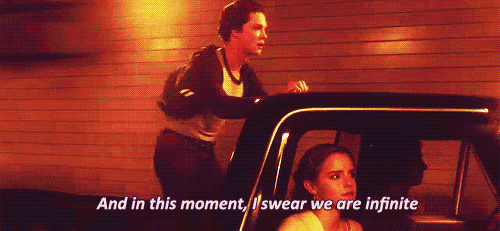
...is later met with the very sobering reality that life is more than those moments. That infinity and momentariness are conceptually at odds. And Sutter may be the real successor to Charlie in terms of a YA coming of age novel. Even if Sutter might not recognize himself as anything else beyond his moments of now and the moment of adulthood is quite achieved, Tharp gives the reader a true journey even if the ending isn't the one Hollywood provided.
But life is complicated anyway. And, besides Aimee gave a pretty good moral in her own words...
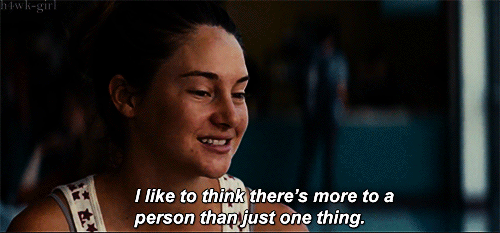
Princesses Behaving Badly

This book was given to me as an uncorrected proof, thank you Quirk books! Opinions in this review may be different from the finalized book.
"Well behaved women rarely make history" is a quote that is famous for its misappropriated concept as well as who said it (contrary to many internet sites it does not belong to Eleanor Roosevelt, but a Harvard historian named Laurel Thatcher Ulrich). First, it was used to remark that many of the dutiful puritan women did not have a lot of personalized history because what they were doing was standard behavior for the time; however, it took on its own life as a call to arms of women breaking societal expectations.
This book, "Princesses Behaving Badly" by Linda Rodriguez McRobbie, both reaffirms the idea as well as comments on how even extraordinary women sometimes have their legacies buried, famous cases in point Emperor/Empress Wu and Hatsheput whose successors did their best to bury the achievements. It serves as a neat little introduction to many historical women of note, some of whom you may have heard of and many more you haven't. Its chapters are brief and pithy, which can be the book's selling point as well as its major downside depending on who reads it.
A great point of note is that this book does not limit itself to the insanity that is European royalty, although they would have had more than enough material for a book if they had. The princesses here range from Kublai Kahn's formidable niece, a South American slave turned conquistador's advisor, the tenacious ruler of Ndongo, and more. Likewise, while most of the examples come from the last few hundred years, largely due to earlier records being notoriously hard to compile or verify, and unlike other historical non-fiction, McRobbie is usually careful to detail supposition from fact.
The downside is that McRobbie's magazine article writing style does not often use the practice of citing the provenance of these facts. For example, in the Khutulun chapter, she discusses a theory about the female warriors in Mongolian culture, which comes from Jack Weatherford's "The Secret History of the Mongol Queens" and apparently the finished edition lists it in the bibliography, but I feel it deserved a mention in the text when directly taken from another historian's opinion and first hand research. Also the amount of attention given to said historical people varies from chapter to chapter, with some notable figures being given a few paragraphs to others pages and some princesses grouped in chapters for one arbitrary trait when they could have just as easily been arranged by time or country for all the difference it made.
And that is essentially the dividing opinion of the book. For a reader who is just getting into the subject and wants an encyclopedia-like variety with basic facts, this is a great introduction. It's perfect as a coffee table book, an opener for conversation with "did you know that..." in small talk, or bathroom reader. However, major history nuts will probably just skip to the bibliography section and go straight to the sources that provide a more in depth and historically thorough narrative. In my opinion, I wouldn't have known all of the women described. The ones I had read about were still entertaining and the ones I didn't have sparked a curiosity in me.
And that is really the best reason to recommend it.
I have lost patience with the worldbuilding fail in this series

I actually liked "Divergent" when it came out! It was a nonsensical dystopian B-movie of a book with a brisk enough pacing of plot and characters to make me ignore how full of holes this world is. It was fun, it was popcorn turn off your brain sort of thing. I didn't mind that! I know there's books with werewolves on the Titanic, this is just another level of ridiculous, right? "Insurgent" made it worse with its attempts at plot twists but I had to finish and see maybe the end would be an entertaining enough climax to ignore the dumb twist. And yet... this book...
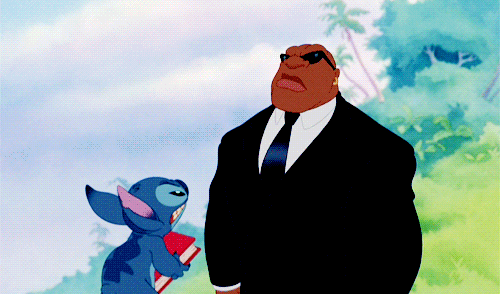
[spoiler]THAT IS NOT HOW GENETICS WORK! THAT IS NOT HOW BEHAVIORAL PSYCHOLOGY WORKS! MY GOD HAVE YOU EVEN HEARD OF A PUNNET SQUARE?! KEEPING GENETICALLY DAMAGED PEOPLE CONFINED AND INTERBREEDING JUST PRODUCES MORE OF IT! AND IF THEY BRED OUT AGGRESSION FROM AMITY WHY ARE THEY ACCUSED OF STARTING WARS! WHY CAN'T YOU EVEN MAKE CONSISTENT SENSE OF YOUR ALREADY STUPID REASONS! STOP! STOP HURTING SCIENCE, IT HASN'T DONE ANYTHING TO YOU!!
[/spoiler]
 I feel I should give this rating a disclaimer. If this book were not a re-read, if I had come into it completely new, it would have been a 3 to 3.5 for me. But the memories I have of this book are so pervasive and so revolutionary back when I read it that I can't give anything that formative less than five.
I feel I should give this rating a disclaimer. If this book were not a re-read, if I had come into it completely new, it would have been a 3 to 3.5 for me. But the memories I have of this book are so pervasive and so revolutionary back when I read it that I can't give anything that formative less than five.Honestly, these recollections were not all The Dream Master. I just started cutting my teeth on "adult" sci-fi at the time, and threw myself recklessly at anything that purported to be a classic. This is why I had the fortuitous luck of reading Zelazny's The Dream Master right up against Ursula Le Guin's The Lathe of Heaven. Both dealt with dreams, albeit it in different ways. One was a tool consciously then unconsciously wielded, the other was an unconscious wildness that others sought to tame. Both ended in a manner that was both tragic and suitable.
What I remember was the description of the son as he described how an inventor dreamed of efficient machines while he pulled off the legs of grasshoppers and how the metal gears must have sounded like the shrieks of all those murdered grasshoppers. I remembered comparing it to the Kafka-esque descriptions of lacquered shells in The Lathe of Heaven, the otherness of nature and how it is molded. I remembered cars that drove themselves and didn't stop when someone walked into traffic, and deep set eyes of a guide dog who could speak but not exactly like a human nor howl like the dogs he had been mutated from.
I remember glancing at the computer for practically every other scene, looking up things like Eloise and Abelard (which I still remembered) and enantiodromia (which I did not), fascinated at how symbols played out while the language and structure unraveled. The references and scenes helped me to better appreciate the rest of the scenes, and the narration of dreams kept my imagination going at full throttle to picture it.
So essentially what I am doing is justifying why I love this novel even though it can feel padded with the many threads and does not come qualitatively close compared to Zelanzy's other works. Because this is a book that can work like Render's machine, and it has left its mark when so many other novels are completely forgotten; although this mark may be malleable and refitted with a new awareness, it lingers the same way a particularly memorable dream will retain flashes and remnants even when you wake.
 A fascinating read about Alex Dumas, and it makes me want to find the unabridged version of The Count of Monte Cristo to see how much of his life is in the pages.
A fascinating read about Alex Dumas, and it makes me want to find the unabridged version of The Count of Monte Cristo to see how much of his life is in the pages.Also, Napoleon, what a dick.
 When a girl who has been bullied for years decides to bring the three tormenters to their government class for a trial, the case exposes the frailties of justice when the class is made to participate.
When a girl who has been bullied for years decides to bring the three tormenters to their government class for a trial, the case exposes the frailties of justice when the class is made to participate.The good: with short chapters and easy to understand language, this is a good book for reluctant readers who find the premise intriguing. It's a fast read, more middle grade fare with YA subject matter. The set up premise makes sense as well. Victimized Ivy never really makes herself sympathetic and is mostly passive, which helps in setting up the reasonableness of how this longstanding abuse has gone on and why so many classmates turn a blind eye to it. The chapters alternate between different POVs, showing how the personal desires and motivations can interfere with truthful findings.
The bad: for those who wanted a more nuanced or complex story hinted from the premise, you will find the set up promising but most of the characters behind them as one-note: the space case, the painfully shy one, the self-preservationist, the upstanding serious one. The plot hinges on a lot of failures of the kids, who are either ineffective or sycophantic (and the only one who takes it seriously sounds too much like an adult to be realistic, not to mention being conveniently removed from pulling a Twelve Angry Men with the jury pool). The continued sham of a trial compiles these problems, bringing with it a suspension of disbelief that never holds enough sympathy or character development to bring about a satisfactory resolution, guilty or innocent.
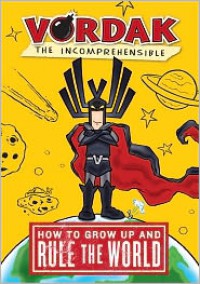 A cute supervillain how to guide, but the electronic versions of it are riddled with coding errors and typos. Get it in print for the layouts and illustrations to make sense.
A cute supervillain how to guide, but the electronic versions of it are riddled with coding errors and typos. Get it in print for the layouts and illustrations to make sense.

Breakaway is a story that's been told many times. It's about the struggle that often happens for the children of immigrants who are ostracized for being too foreign to be part of the land of their birth (in this case, Canada) and still unfamiliar with the land of their ancestors to truly claim the other place as their home.
Kwok-ken Wong is the protagonist, a young man is further isolated in his struggles because his family's demands for keeping up the farm keep him from associating in the possible refuge of Vancouver's Chinatown, so all he is left outside of his chores are his studies and soccer. Soccer is his true refuge, where he finds a sense of team spirit and meritocracy are enough to overlook how blindingly racist the rest of his school is to him.
This novel has all the elements of a book that seeks to address the topics of racism and a loss of self-identity: the brusque cultural misunderstandings between parents and children, the clear cut moments of being profoundly recognized as other, the triumph in finding some common ground with peers, all of this could be packaged into the script of an underdog sport story and do a perfectly fine job of it. But Breakaway never manages to break free of the conventions enough to be its own story. It's fairly well told but sparse, lacking moments of humanity that make this genre shine. Kwok's journey from a young man ashamed of his situation into someone who better understands his situationa nd himself isn't as rich and self-aware a transition as it is more something delivered because the book was coming to a close.
I picked it up because I love soccer stories and found it playing a minor part, but that might be a draw. Those who really love reading historical fiction that focuses on the Asian-American/Asian-Canadian experiences will not find anything new but not be disappointed.
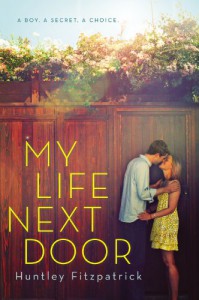 Disclaimer: I received a copy of the book from the publisher in exchange for an honest review. Thank you for the book, Penguin Teen!
Disclaimer: I received a copy of the book from the publisher in exchange for an honest review. Thank you for the book, Penguin Teen!Seventeen-year-old Samantha Reed's life is like her home: perfectly kept and perfectly cared for. She's a straight A student with two jobs, her mother is a state senator, her best friend is on track for the Ivy Leagues, so, aside from the stress of wearing a ridiculous sailor outfit for her job at Breakfast Ahoy, Samantha is about as angst free as you can get for a teenager. And yet she spends hours looking out beyond the fence to her neighbor's yard, watching the chaos of the Garretts' large family, their chaos and confusion, wondering if that is a different kind of perfect than the one she knows.
Then one day she finds one of them has climbed up on her roof to watch with her.
That's the basic premise of My Life Next Door, a story about first love and families. The interactions between Samantha and Jase Garrett have all the right beats to explain an authentic, if not enviably awesome, first love. I found it refreshing that their romance wasn't instantaneous but it also didn't take up the entirety of the novel with a "will they/won't they" dynamic. It was an interaction that was heavily laced with attraction but impromptu babysitting and other circumstances were responsible for them to getting to know each other, so when Samantha asks Jase to kiss her after a month of knowing each other you don't think it's too rushed or something dragged out for the novel's peak moment. It's the Baby Bear zone of being "just right" given the circumstances.
And while Jase is almost too good to be true: an extremely hot guy who is an all around handyman and works at his father's business when not playing the patient doting big brother or doing extensive training for a football scholarship? The only thing I didn't buy is why there wasn't a line of girls waiting to go out with him! But he shows his flaws and contradictions enough that he doesn't tip over into wishful thinking category, all the while staying firmly in the "boyfriend you dream about having" field.
There are a number of other refreshing change from most other contemporary YA romances.I love how Samantha has had boyfriends before and is able to compare the idea of dating out of convenience or "why not?" to the kind where there's intense attraction like with Jase. I love that Jase had his own previous relationships that are just there, not some specter to come up in the third act. I love that when two hormone addled teenagers get together sex is actually addressed. They talk about it, they are interested in it, discuss the timing and protection, relate their embarrassing parental advice, and both start out as virgins but sex happens during the novel. I can count on one hand the amount of YA stories I read that managed to treat such a topic in a frank way without making the story all about it, so my infinite respect goes to Fitzpatrick for going there. But people who want a "clean teen read" can considered themselves duly warned. But it was definitely going to be a topic that comes up when one of the two protagonists come from a family of eight children.
And what about the Garrett family? Oh, the Garretts are far and away the best thing about this novel. There's the four-year-old George who gets the best lines with his somber recitation of facts and marriage proposals. Hard edged older sister Alice, the girl who breaks other guys' hearts but shows her true fierceness when she realizes Samantha has the power to hurt Jase. Fourteen-year-old Andy, who is going through her own introduction to dating. Baby Patsy with her talk of boobs and scatalogical humor. Even the ones given less time are still given the space and familiarity of other characters that it doesn't feel like they exist solely for Samantha to gawk at, and the warmth and inviting insanity of their home is something genuinely appealing even as you read about snakes escaping, children running amok, and seven different things going wrong at the same time.
Fitzpatrick uses a deft hand to write Samantha's first person narration as she grows to love the Garretts alongside her deepening feelings for Jase. There are an abundance of subtle tensions between her mother's exacting standards of perfection and the strange otherness that Jase's life offers, instances where Samantha's priorities end up pushing Jase away unintentionally. However, most of these conflicts are minor hiccups compared to other drama that goes on in the novel, such as Samantha's childhood friend, Tim, dealing with his addictions, or Samantha's mother running for office with a truly despicable sleazebag campaign manager who may or may not be cheating on her.
These added complications happen, and often do provide a multifaceted existence to the characters' lives in the story. After all, even if some people do end up ignoring everything else for the intensity of their first love, other things continue to operate regardless. Unfortunately, Fitzpatrick has not yet managed the ability to blend her elements together as seamlessly as other YA contemporary juggernauts (examples of people who have nearly perfected this art: Sarah Dessen or Sara Zarr). For example, the matriachal Grace Reed comes off as more of a demonic, shrewish narcissist than the character I think Fitzpatrick wanted to portray, that of an uptight perfectionist who lets her ambitions and prejudice overshadow her daughter's well-being in spite of wanting the best for her. And although the other storylines intersect with the main one in many ways that improve the story, these side storyarcs also have their drawbacks.
Tim's character arc is the most egregious in terms of suspension of disbelief and tonal consistency. He was written this hopeless wreck who first got drunk at twelve, had done drugs for years (including a mention of coke), got kicked out of school and fired from many jobs for said drug habits, unrepentantly steals money from Samantha and his sister for his fixes, practically killing them in a terrible car accident before blacking out drunk to...suddenly becoming someone who manages to stave off his addiction with packs of cigarettes and pixy stix.
Tim at the beginning seemed to be a symbol of how class status and opportunities don't always mean the person can't be a wreck on the inside. One of the most poetic scenes was Samantha noticing that her mother's perception of the world would be to see Tim as the "upstanding" one in his nice clothes compared to Jase in his ratty greaser shirt, so she would never notice how Jase radiates overwhelming compassion and Tim casually crushes spiders underneath his heel. It was beautiful and telling, and yet... Halfway through the novel he is transformed into a fun supporting character, actually supportive too, who seemed only to need someone like Mr. Garrett to point him in the way of an AA meeting to get clean.
Do I think it's possible for a person do turn their life around that dramatically? Yes. But it doesn't work when the novel introduces something intensely complicated but then explains the journey from point A to point L with a wave of the hand. And, worse, it drags attention away from what the novel is really trying to explore by putting something weighty and problematic alongside it. For the record, I liked Tim as a character, I just wish his darkness didn't seem to come at the cost of making the rest of the character's problems less than his. It usually leads to things like this:
"I hate knowing the right thing to do and not having the balls to do it. This sucks. This is payback, isn't it? You wouldn't believe the things I've done, the tests I've cheated on, the rules I've broken, the times I've fucked up, the people I've screwed over."
"Oh knock it off already, man, with the 'nobody knows the horrors I've seen' routine. It's getting really old," Jase snaps.
Yes, exactly Jase. This is why you are my favorite. Well, that, and everything else.
My Life Next Door provides a poignant look at the explorations of first love, especially the kind of love that develops in a place different from one's familiar surroundings. For readers who want to immerse themselves in Samantha's acceptance by the Garrets and enjoy the antics of a large family, this novel provides a humorous and nuanced read. She manages to imbue characterization into most of the eight children with only a few lines, making them memorable or at least natural to see how some are prominent and others on the periphery of Samantha's attention.
However, those who are sensitive to a story's tone may find a disconnect between the emotional tenderness of the romance Samantha has with Jase (and by proxy, his family) in comparison to the rest of the novel's weighter topics. There is an uneven payoff in the ongoing subplots, which only gets more prominent as the story progresses. These disconnects are not enough to ruin the good foundation that Fitzpatrick sets up in having the reader invested in Samantha and Jase's happiness, but it does run the risk of making the novel's end less than satisfactory. Some subplots are left in mid-conflict, and the major "choice" that the tagline hints at comes in the last quarter of the novel, which doesn't give it the time to be properly resolved after the pacing of the previous chapters. Nevertheless, the novel manages to put you in Samantha's position of being an observer to something different and unknown, drawing you into the tumultuous events in a way that entertains and keeps pages turning. Even if it's not perfect, My Life Next Door is a welcome addition most readers wouldn't mind borrowing a cup of sugary teenage romance from.
 Review for the non-Gaiman fans: The Ocean at the End of the Lane is a story about a middle-aged man who goes back to the scene of his childhood, spurred on by the memories of a girl named Lettie Hempstock who once said the pond by her home was an ocean. The closer he gets the more he remembers, when a suicide led to a darkness stealing out of somewhere unknowable, and a darkness invading his life while he is helpless to stop it. He begins to recall the summer when he was seven and that darkness tied itself to his heart, with mysterious and wise Lettie as his only hope of protection.
Review for the non-Gaiman fans: The Ocean at the End of the Lane is a story about a middle-aged man who goes back to the scene of his childhood, spurred on by the memories of a girl named Lettie Hempstock who once said the pond by her home was an ocean. The closer he gets the more he remembers, when a suicide led to a darkness stealing out of somewhere unknowable, and a darkness invading his life while he is helpless to stop it. He begins to recall the summer when he was seven and that darkness tied itself to his heart, with mysterious and wise Lettie as his only hope of protection.Gaiman writes myths and legends with a quiet sense of place, where you know those elements are greater than stated by the narration, and possibly greater than yourself. This is tied well because he can get into the essence of a child's head very well, their fears and methods of cognitive recognition, the compartmentalization of knowing a horrible evil thing wants to hurt you badly and yet the comfort of a kitten can become an immediate remedy. The child's soul is there even if he gives them a voice that is older than their age.
Ultimately, it is more a story to see the details than get to the end of it, although he ties suspense in so well that you fear what may happen to the unnamed narrator. If you have never read anything of Neil Gaiman's this is a good start for a blend of dark fairytales and wonderment mixed with dread.
Review for the Gaiman fans: A novella that retreads some of Gaiman's favorite subjects that seem to blend his juvenile work with his older novels, as indicated by the framing of the narrator as a middle aged man telling the story of when he was seven. At its heart showcases the mysteries of the universe with a keenly felt edge of childhood's perception. It is not Gaiman's strongest work, but it might be the one that is more his than any of the others; in fact, when you read about the narrator's lifelong search to make art, you might mistake it for Gaiman's own words.
At the same time, there are elements in it that he has done better in other ways. If you wanted a story that encapsulated the fears and threats of a child protagonist, his work in Coraline is richer and more compelling in its gothic horror. The Graveyard Book surrounds its child protagonist with a more consistent setup of supernatural mentors in comparison the Hempstocks, who serve as protectors to this book's narrator, but often feel too mysterious to work as opposed to being Just Mysterious Enough to be both recognizable and not. For his interesting concepts of eternity, reality and other heavy philosophical questions, his work in Sandman and The Books of Magic state their positions (or lack of ones) in a more drawn out and nuanced way than the protagonist's revelations.
However, for someone who wants a story that is equal parts fear lurking underneath your bed and wonder at what those dark alcoves mean in the sense of a greater understanding, this book is an engrossing read that you can finish in one sitting. Even Gaiman at his less than best can still deliver thoughtful and poetic narration that is a worthwhile experience, full of myth and wonder that would bring you back to his other works.

